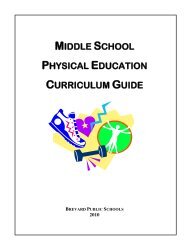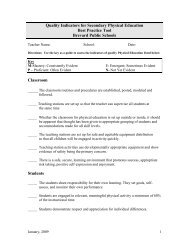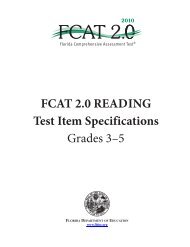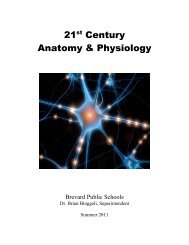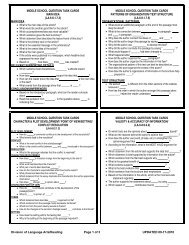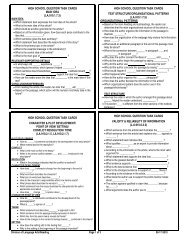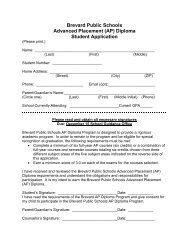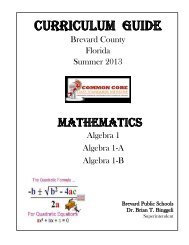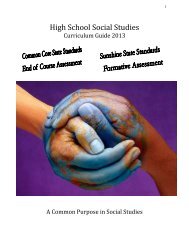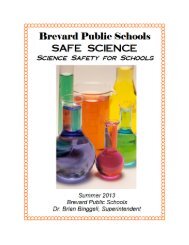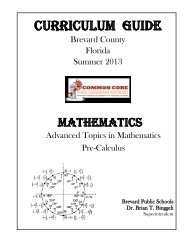Science Research Program Guide - Secondary Programs Home ...
Science Research Program Guide - Secondary Programs Home ...
Science Research Program Guide - Secondary Programs Home ...
You also want an ePaper? Increase the reach of your titles
YUMPU automatically turns print PDFs into web optimized ePapers that Google loves.
Introduction<br />
Student <strong>Research</strong> is designed for the motivated, creative, and inquisitive science student. The<br />
program was developed to provide interested students with an opportunity to acquire skills and<br />
concepts inherent in the science research experience. It is intended to teach students to be<br />
creative, careful, patient, and exacting in their methods of study and laboratory investigations.<br />
The students will experience science through original research. The students will practice<br />
scientific thinking and learn scientific processes, which may advance the student in their<br />
educational and career goals.<br />
<strong>Science</strong> research is related to real-world issues. It requires a thoughtful critique of all aspects of<br />
investigations as well as extensive opportunities in designing and executing investigations. The<br />
students should be able to discuss differences in scientific opinions as related to the nature of<br />
scientific evidence. <strong>Research</strong> students should be proficient in formulating testable hypotheses.<br />
Knowledge and understanding of this process is gained by experimenting. After completing an<br />
investigation, students should discuss methods or strategies that may improve future<br />
investigations. <strong>Science</strong> research is a complex social activity that provides an avenue for<br />
establishing and maintaining positive life long relationships among students, teachers and<br />
mentors. It also promotes insight and analytical skills needed in addressing matters of public<br />
concern. Scientific information helps us understand the likely causes of natural or technological<br />
events and estimate the possible effects of projected policies. Students should actively seek<br />
information by building connections, rather than just by absorbing facts.<br />
Using the process of science research, students ask carefully constructed questions about the<br />
natural world. Such scientific discourse becomes the main pathway to knowledge for scientists<br />
and students alike. A scientific research project can result from the direct observation of the<br />
natural world or knowledge gained from previous investigations. As students grow and mature,<br />
so does their ability to use inquiry-related process skills. The <strong>Science</strong> <strong>Research</strong> program<br />
promotes the “Nature of <strong>Science</strong>” and is well aligned with district, state, and national standards<br />
of scientific inquiry. <strong>Research</strong> skills addressed include:<br />
Observing Qualitative and Quantitative Data<br />
Classifying observed data<br />
Using measurement systems and dimensional analysis<br />
Designing experiments<br />
Hypothesizing<br />
Identifying, controlling, and manipulating variables<br />
Distinguishing between treatment and control variables<br />
Collecting and recording data<br />
Analyzing data<br />
Following safety procedures<br />
Using scientific tools<br />
Understanding the historical and social implication of science<br />
1



